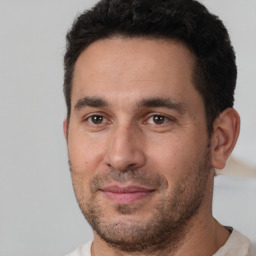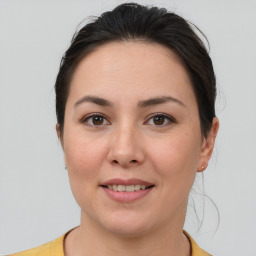Introduction to Professional Development
The dynamic nature of market situations with the changing economic environment induces business organisations and individuals working in the company to come with efficiency and proficiency in their skills. Individuals seek to develop their talents and skills in a continuous process, adopting various methods and measures to fit the organisational standards set by professionals (Wilson, 2004).
This also enables them to establish a prominent position in the market. The report is prepared to elucidate the methods of self-managed learning and their benefits to organisations and individuals. Further, it throws light on the methods to identify the current competencies and future needs of an individual to establish themselves in the volatile market, and a personal development plan is prepared to enhance the skills.
Task 1
1.1 Approaches to Self-Managed Learning
In order to make a strong presence in the market, an individual takes initiative. Self-managed learning is a systematic and planned way of acquiring knowledge and talents under the supervision of experts and specialists. Different approaches are adopted to pursue the process (Malm, 2009). It involves the step-by-step method, as mentioned below.
- Initiation: With the willingness and realisation of the need for the upgradation of skills and talents, an individual is initiated to proceed with this systematic and planned manner of skill acquisition.
- Target and goal setting: With the analysis of the current personality traits, clear goals and targets are determined.
- Aims and requirements: With the above analysis, the future development needs are realised, and accordingly, the personal development plan is prepared within the decided time frames. The methods and approaches are decided with the help of expertise and specialists in the field (Day et al., 2006).
- Implementation: The plan developed and the development opportunities identified are then processed to achieve the targets.
- Self-reflection: An individual also processes the information from their surroundings. Self-reflection is the process of articulating the rationale of one's own practices.
1.2 Identifying Learning Methods, Encouraging Lifelong Learning, and Benefits of Self-Managed Learning
To imbibe certain qualities in the personality and for the acquisition of knowledge and skills, a fast-paced learning process contributes significantly. There are certain methods and processes that help identify the learning styles that an individual uses to process the information (Stenfors-Hayes et al., 2010). I have used the VARK learning style method for this purpose. This method, with the help of a questionnaire and the score card, helps to determine which sensory modalities are used to process the information. The VARK learning style identification process is attributed to work conducted by Peter Fleming (1992).
| Visual | 8 |
| Auditory | 9 |
| Read and write. | 10 |
| kinesthetic | 13 |
| Total | 40 |
| RANK | MY SCORE |
| 1st | Kinesthetic |
| 2nd | Reading/writing |
| 3rd | Auditory |
| 4th | Visual |
By answering 40 questions in the questionnaire and prior experiences, an analysis has been made. Accordingly, the kinesthetic approach and the reading and writing approach get the highest preference. While achieving academic credentials as well, two ways that have helped in understanding the concepts more accurately are converting theories into action, such as when I led the team in which we were supposed to present the models and plans taught in lectures through applying them. In that process, my learning got enhanced in a significant way. Further, my emphasis was always on thorough and in-depth understanding of any subject; for that purpose, I always preferred to refer to authentic books and journals. Hence, reading and writing have been the most effective and helpful approach to my learning process till now.
Methods to Encourage the Lifelong Learning Process
Learning is a continuous process that an individual practices throughout their life. This became an effective process to enhance the efficiency and abilities of an individual to fulfil their aspirations and desires in their personal lives and to acquire competencies in their professional lives (Etherington, 2004). There are various ways in which it can be encouraged in a significant manner.
Academic credentials
The fundamental method that helps in the acquisition of skills and knowledge is the formal means of coaching in schools and colleges. Education at the school level creates the foundation of knowledge and information.
Higher degree courses
Acquiring technical knowledge in a particular field can be attained through higher-degree courses. The government also supports students to pursue this. For instance, credit accumulation and transfer schemes issued by the UK government help bridge the gap for higher professional courses (Moon, 2013). I have also undergone a 2-year HND course in business, which has developed skills in me to consolidate a larger stream of customers with the organisation.
Seminars and conferences
Attending seminars and conferences helps to acquaint oneself with advanced technology and an upgraded world. This gives exposure to a world of better knowledge and skills (Rees, Shepherd, and Chamberlain, 2005). Attending seminars and conferences has enabled me to improve my communication and interaction skills. It has developed my critical thinking skills.
Employment
The organisation understands the need to increase the knowledge and skills of employees to make them fit the volatile and improving market conditions. For that purpose, they conduct training programmes and development sessions. In my training and apprenticeships at work, I have learned advanced techniques and technology used in my field of work. Further, it has developed my interpersonal skills, such as decision-making and leadership qualities.
Surroundings and self-reflection
An individual makes decisions and learns from his or her prior learning and experiences. The adaptability of personality in different situations enables us to learn in many ways.
Benefits of Self-Managed Learning to the Individual and Organisation
To individual
- The initiative taken by an individual to acquire knowledge and skills in a planned and systematic manner helps to meet professional standards (Glazer and Hannafin, 2006).
- With the help of the expertise and the specialists in the field, the individuals bring better learning as the guide to adopting the recommended structured opportunities.
- A person pursuing a personal and professional development plan is endowed with a wide range of qualities and skilled to compete with professional standards. An individual processing these methods is able to adapt to the volatile market situation in a better way.
To an organisation
- It helps the organisation hire employees with better proficiency and the capabilities that are required by the organisation to perform various tasks and fulfil duties.
- It reduces the cost of training, as with the hiring of skilled labour, the management's task of enhancing their skills s reduced. They already possess the skills that help them adapt to the organisation's rules, values, principles, and operational management.
- The entry of skilled labour and employees brings innovative and creative ideas to process the tasks and duties. Further, the better and more resourceful methods' come to resolve the problems and issues (Wilson, 2004).
- The organisations realise the importance of self-managed learning and encourage processing among the employees. The adoption of this planned and systematic technique helps to earn more profitability by increasing the productivity of the employees.
Self-managed learning has been benefiting individuals and organisations on a wider scale.
Need to Consult Directly With Our Experts?
Contact UsTask 2
2.1 Skills Require Meeting the Organisational Goals and Objectives
I am an associate degree holder in marketing management. I aspire to pursue my career in marketing as a marketing manager in the travel and tourism sector. To comply with professional regulatory organisations, certain competencies are required to be enhanced. To facilitate employability in the travel and tourism sectors, the following skills and attributes are needed (Loucks-Horsley et al., 2009).
- Proficiency in verbal and written communication skills.
- The intimate knowledge of the marketing principals and their applicability.
- Leadership skills.
- Decision-making skills
- Technological knowledge
- Planning and organising
- Time management.
By scrutinising my current personality traits, I have identified that I possess strong decision-making skills, good planning and organisation skills, and am also acquainted with leadership qualities (Alsup, 2006). I have also inferred that to enhance the career progression and to improve the professional competence, I need to improve my technical knowledge of marketing principles and their applicability, imbibe technological advancements in my processes, and also bring proficiency in effective communication.
2.2 Personal and Professional Development Needs
A marketing manager in travel and tourism is endowed with a slew of duties and responsibilities. To practice this efficiently, there are certain qualities that need to be possessed. To identify personal and professional needs, I have performed the SWOT analysis (Meijer, Morine-Dershimer, and Tillema, 2005).
- Strengths: Good leadership skills, decision-making, and better planning and organisation of the tasks and duties assigned are my strengths.
- Weakness: Less acquaintance with technological advancements and communication skills below the benchmark set by the organisation are my weaknesses.
- Opportunities: Working in the travel and tourism sector gives an immense opportunity to enhance skills and upgrade the persona to establish a prominent position in the market. Further, the training programmes, development sessions, apprenticeships, seminars, and conferences in the sector give employees exposure to a better and more advanced world, and they also create opportunities for career advancement.
- Threats: The organisations working in the travel and tourism industry work with a high degree of standards, and they employ applicants with higher proficiency and adaptability to the profession. To sustain and survive, individuals are required to come up with better skills and talents (Webster-Wright, 2009).
2.3 Development Opportunities to Meet the Current and Future Needs
In order to escalate the skills and proficiency in the above-described competencies, the following are the development opportunities: Through this, current and future needs can be met.
- Communication Skills: Communication skills can be improved by joining the professional degree course in verbal and written communication skills. Further, increasing the intensity of reading books and engaging more in group discussions increases the quality of communication and proficiency. Attending the CIPR internal communication diploma makes communication effective and improves public relations.
- Marketing Skills: The technical knowledge of marketing principles can be enhanced through higher-degree courses. Further, with the practical use of models and mixes in real projects under the guidance of senior managers and specialists in the field, better understanding can be gained. For the enhancement of marketing skills, a diploma in professional marketing is beneficial, as it teaches different ways to adopt strategies and apply them in a pragmatic manner.
- Technological Advancements: Recognised as the era of information technology, technology is improving at a fast pace. To be equipped with such advancements, research and better connectivity with the sources will help (Penuel et al., 2007).
Task 3
3.1 Work-Based Problems in an Organisation
The sector I am aspiring to work in, the travel and tourism sector, operates by adopting an integrated model that operates with vertical and horizontal integration with other organisations working in similar or contributing organizations. Allocation of work among the different groups and teams is the effective criteria adopted by the tour operators in the industry (Desimone, 2009). But the manager endowed with a slew of duties and responsibilities encounters so many work-based problems. One such problem the organisation faces is ineffective team management.
The identified learning style can be implemented to resolve the identified issue in the following manner (Brinkerl, 2006).
- The kinesthetic approach helps in resolving the issue in a considerable manner. That is, the adoption of different models and techniques to make effective management and foster a sense of teamwork among the members.
- The learning style helps to identify the strengths and weaknesses of the employees working in the organization. This enables the manager to assign them duties and tasks as per their field of work, which brings better productivity to the organisation.
- By adopting the different approaches, the manager enables them to learn the different techniques and stay abreast of new technology in the process of working, which further trickles down to increase the profitability of the organisation.
3.2 Different Ways to Communicate
In an organization, employees function at different levels of strata. The continuous communication between the different levels helps the organisation achieve perfect feasibility. Different methods and techniques are adopted to communicate at different levels. This is categorised in the following manner (Hunzicker, 2011).
- Strategic: At this level, there is the board of directors who frame strategies and policies to function, which are then delivered to the subordinate levels for implementation and execution. The managers at this level are endowed with so much pressure of work and responsibilities; hence, they have limited time to go through every detail. At this level, communication is formal and verbal in the form of presentations and oral dictation.
- Tactical: The administrative level of the organisation where the execution of strategies framed is done. The delivery of orders from the upper level is in the form of both verbal and written communication. This includes formal communication, but between the horizontal levels of employees there is informal communication (Clark and Harmer, 2006).
- Operational: The very subordinate level of organisation is the organisational level. At this level, communication is done informally in a verbal manner. At this level, training is also conducted, which is done through seminars and conferences.
Learning styles such as the VARK model and the Honey and Mumford model help identify the strengths of employees, and accordingly, they are assigned their tasks and duties.
3.3 Effective Time Management and Strategies
The responsibilities of so much work to the manager sometimes lead to haphazard management. To pursue the work in a smooth and effective manner, there are certain strategies and ways to be adopted. The implementation and execution of the stragies can be done in the following manner:.
- Planning effectively: To manage the slew of work and tasks in a hassle-free manner, the planning of the tasks and work is very crucial. For that purpose, with the use of the resourceful planning tool, the management of work and tasks can be done. Such as using the electronic planner helps the organisation manage the work.
- Prioritising: arranging and executing the tasks as per their priority and importance enables hassle-free working and functioning. As per the preferences and the importance of the task, it is assigned. Arranging the time frames is also kept in consideration (Professional and personal development, 2013).
- Stopping procrastination: The delaying of tasks and work for tomorrow creates clutter in the work of the organisation and manager. By avoiding delays in work and procrastination, the work can be executed smoothly.
Among the above-mentioned methods, using a planning tool is the most appropriate, as it is a comprehensive way to manage time. With the proper use of this time, it can be managed in a lucrative manner.
Conclusion
With the above report prepared, it can be inferred that the development plan helps to enhance skills and efficiency in a systematic and planned manner. Through different models, learning styles have been identified to speed the pace of learning. Further, a development plan helps in acquiring other required attributes and skills.
References
- Alsup, J., 2006. Teacher identity discourses: Negotiating personal and professional spaces. Routledge.
- Avalos, B. (2011. Teacher professional development in teaching and teacher education over ten years.Teaching and teacher education, 27(1), pp. 10-20.
- Brinkerhoff, J. (2006. Effects of a long-duration, professional development academy on technology skills, computer self-efficacy, and technology integration beliefs and practices. Journal of Research on Technology in Education, 39(1), pp. 22-43.
- Clark Callister, L., and Harmer Cox, A., 2006. Opening our hearts and minds: The meaning of international clinical nursing electives in the personal and professional lives of nurses. Nursing & Health Sciences, 8(2), pp. 95-102.
- Day, C., and et al., P., 2006. The personal and professional selves of teachers: stable and unstable identities. British Educational Research Journal, 32(4), pp. 601-616.
- Desimone, L.M., 2009. Improving impact studies of teachers' professional development: Towards better conceptualizations and measures. Educational researcher, 38(3), pp. 181-199.
- Etherington, K. (2004. Heuristic research as a vehicle for personal and professional development. Counselling and Psychotherapy Research, 4(2), pp.. 48-63.



 Company
Company


















